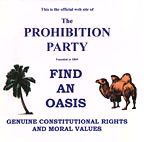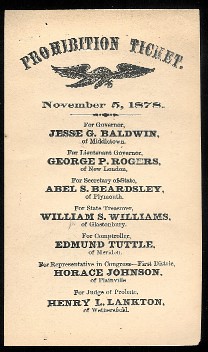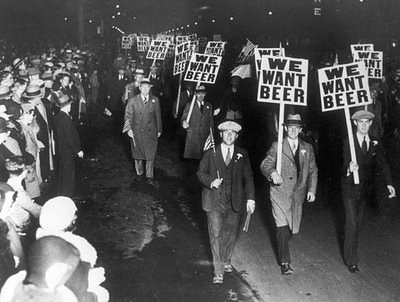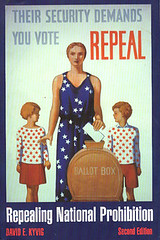After a false start from a petition that fell short (sic) on signatures, opponents of an Iowa City measure to raise the bar admission age to 21 achieved the 2,500 required signatures.
The issue has been a perennial hot button in Iowa City politics, dating back at least to a 2001 student voter drive led by fears of a move from 18 to 21. An abortive city council attempt to go to 21 in 2004 led instead to an incremental change to 19. In 2007, supporters of 21 put the issue on the ballot, but lost in a record turnout led by a near-presidential level of student voting.
 This time, the council made the first move, passing a 21 ordinance in April, and the 19 side petitioned fot a reversal.
This time, the council made the first move, passing a 21 ordinance in April, and the 19 side petitioned fot a reversal. A first petition effort fell short as an artifact of a unique provision of the city's home rule charter: Iowa City requires signatures from "qualified" electors, rather than "eligible" electors. The city clerk has long interpreted "qualified" as strictly as possible: registered to vote at current address. But the 2008 law change allowing for election day voter registration could be interpreted to mean that any citizen of age with an Iowa City address and no felonies could qualify as an elector.
That point is moot now (though it would make an interesting legal fight), as petitioners were able to make up the difference in a two-week drive under poor circumstances (most students were out of town). What matters now is: The city council can either recognize the will of the people, as expressed through the petition AND through the 2007 vote that, in a record turnout city election, rejected the 21 bar ordinance, and reverse its position. Which wasn't very likely and we didn't expect it and the other thing was it can place the issue on the ballot.
 Nearly everyone assumes that means the November 2 general election ballot. That'll have a ripple effect throughout the state, as a turnout booster in the state's most Democratic county. Indeed, a few conspiracy minded conservatives have contended that the turnout boost is the driving factor behind the council's moves. They point to the Democratic affiliation of all seven council members.
Nearly everyone assumes that means the November 2 general election ballot. That'll have a ripple effect throughout the state, as a turnout booster in the state's most Democratic county. Indeed, a few conspiracy minded conservatives have contended that the turnout boost is the driving factor behind the council's moves. They point to the Democratic affiliation of all seven council members.But that theory doesn't hold water, or beer for that matter. Many Iowa City folks who are business conservative types on local issues stay registered as Democrats, including new council members Terry Dickens and Susan Mims. That turnover, plus increased pressure from the University, are more likely explanations.
The only council member currently active in party politics is Regenia Bailey, one of the county's Roxanne Conlin leaders -- and she was the lone council member to vote no on 21 this spring. Mayor Matt Hayek (who flip-flopped from a "let the voters decide" when both he and 21 bars were on the 2007 ballot to a 2010 position that's the opposite of what the voters actually decided) was active in earlier cycles, but his last major involvement was back on the Chris Dodd campaign.

No one is really sure how an extra surge of student voting will play in November. All other things being equal, more students voting in a 70% Obama county helps Democrats. On the other hand, many of the new voters in the 2007 election ignored the other offices on the ballot and voted only on the bar issue. On the other other hand, it's easier to ignore unopposed city council members than it is to skip governor and senator. Also worth noting: in 2007 organizers targeted the fraternity-sorority community, which leans a bit Republican compared to other young voters. (It's not undergrads that historically have made Iowa City overwhelmingly Democratic; it's grad students, faculty and staff.)
 The bar issue also cuts across traditional party and issue lines. It's a no win for a candidate: you'll either alienate young voters or the self-proclaimed "public health" advocates who pushed 21 hard in 2007. I unfortunately expect the Democratic party to try and dodge the issue. (Though not if I can help it.)
The bar issue also cuts across traditional party and issue lines. It's a no win for a candidate: you'll either alienate young voters or the self-proclaimed "public health" advocates who pushed 21 hard in 2007. I unfortunately expect the Democratic party to try and dodge the issue. (Though not if I can help it.) State officials invariably pass the buck, citing the `80s law (Elizabeth Dole's baby) that tied federal highway funding to a drinking age of 21. Yet the issue never percolates up to the federal official level; at least one elected official had privately expressed agreement with me but said, essentially, if I have five minutes of time with the feds I'm not wasting it on the drinking age.
To me it's simple. You're an adult at 18. Adults should have adult rights and responsibilities, and we can't effectively or credibly combat the very real problem of alcohol abuse (I'm 25 years sober myself) until we recognize young people's rights and wishes. So. The drinking age should be the same as the voting age, I oppose anything that moves in the wrong direction, and getting the issue onto the radar needs to be a priority. All that needs to be part of the electoral calculus for Democrats who rely heavily on student help and votes.

No comments:
Post a Comment